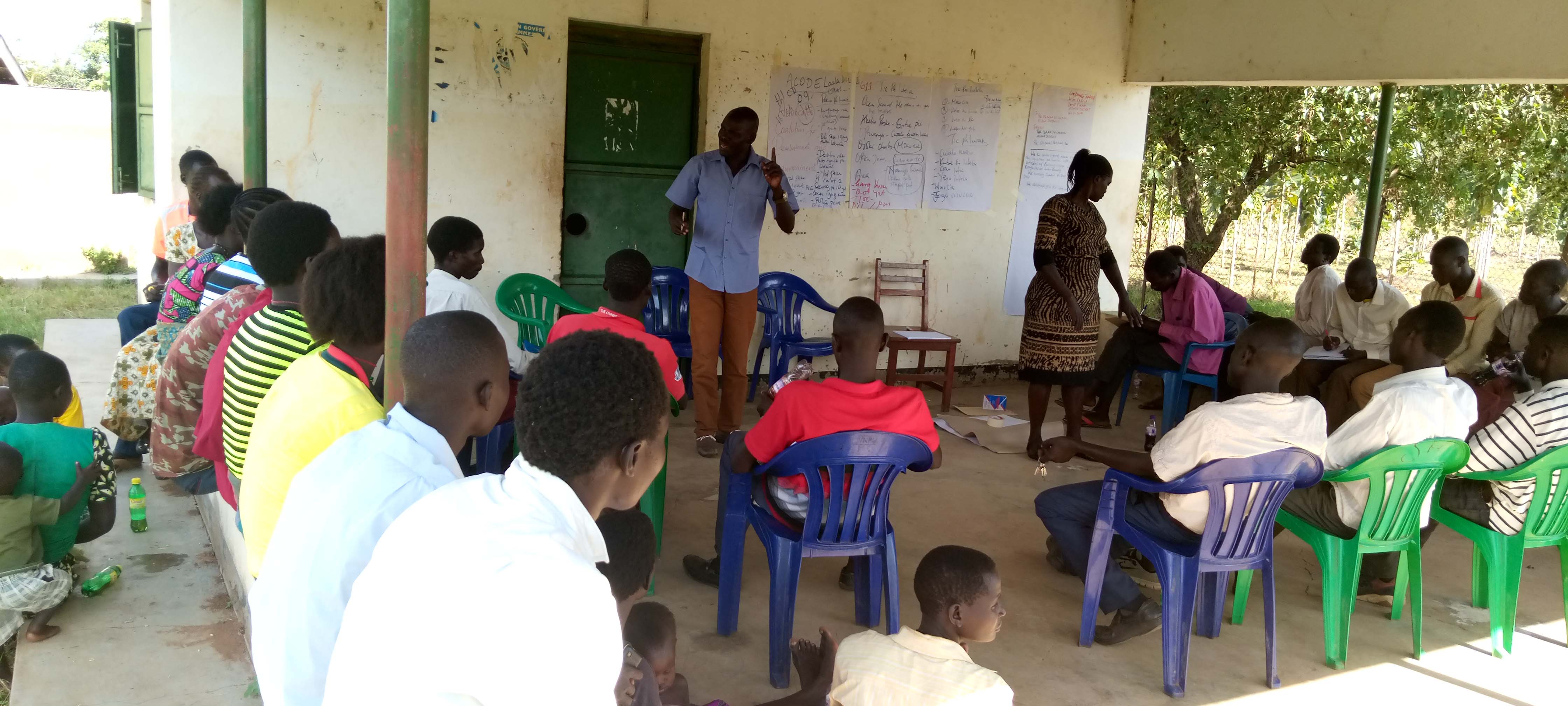- Home
- News & Information
- Success Stories
Empowering Local Communities Boosts Service Delivery and Accountability in Uganda
Posted on: 2023-09-13 00:00:00

In an era where transparency and accountability in public finance management had mainly focused on the supply side, ACODE championed a transformative approach to building the demand side of accountability. Recognizing the critical role of citizen participation in fostering effective governance, ACODE designed strategies that empowered communities to actively engage their leaders and demand efficiency in the delivery of public goods and services.
With the introduction of Civic Engagement Meetings (CEMs) and Citizen Engagement Action Plans (CEAPs) methodologies in local communities, citizens have been empowered to strengthen the demand side of accountability, especially at the local level. These approaches were designed to enhance citizens' capacity to effectively participate in public affairs that affect their livelihoods. By providing communities with the necessary knowledge and skills, these approaches have helped citizens to actively participate in decision-making processes and hold their leaders accountable.
For decades, one of the major contributing factors to weaknesses in public service delivery in Uganda has been attributed to limited citizen engagement in public affairs. ACODE identified the need to address this gap by developing citizen-driven demand for service delivery and accountability, enabling communities to utilize the available tools for engagement and hold duty-bearers accountable.
Through the implementation of CEMs and CEAPs, communities have witnessed a remarkable transformation in their ability to engage with local authorities. Citizens now utilize tools to petition and write letters, which are submitted to district councils through their representatives, as a means to demand services and accountability. The impact of these efforts is evident in the staggering number of citizens' petitions. Since 2018, over 300 petitions have been submitted to various local councils across multiple districts demanding improvements in service delivery.
The utilization of civic engagement tools has proven to be a game-changer, as citizens assert their voices and actively participate in shaping the governance landscape. The increasing number of petitions serves as tangible evidence of citizens' determination to hold their leaders accountable and demand responsiveness. ACODE's initiative has contributed to the growth of civic competence, fostering an environment of participation in decision-making processes and ensuring their voices are heard.
The Chairperson of Gulu District, Hon. Christopher Opiyo Ateker, agrees that ACODE’s civic engagement tools have awakened the civic competence of residents in the communities in his district. In one inspiring example, residents of Lapeta in Unyama Sub-County in Gulu successfully petitioned the district for a new maternity ward in 2018. This success has inspired other Sub-Counties to demand services as well, with residents of Omel Sub-County in 2022 petitioning for an upgrade of Omel Health Center II to Health Center III. Hon. Opiyo confirmed that the district forwarded the petition to the central government in April 2022 and is under consideration. Also, in Nebbi District, the citizens drafted and submitted a petition to the Speaker of Council on March 28, 2019. In the petition, the citizens demanded that the Council allocate UGX 15 million to construct a 4-stance pit latrine at Adhwongo Primary School. Subsequently, on May 26, 2020, the District Council resolved under Min: COU/05/46/2020 to allocate UGX 20 million for the construction of a Ventilated Improved Pit (VIP) Latrine at Adhwongo Primary School.
The success of ACODE's approach has demonstrated the transformative power of citizen engagement in driving accountable governance and improved service delivery in many other districts. By empowering communities with the necessary tools and knowledge, ACODE has created a culture of social responsibility, bridging the gap between leaders and the led. The citizens at the local level empowered with different tools like letters, petitions, community meetings, and call-in radio talk shows among others, have been able to demand better health care, road maintenance, sanctions against errant teachers in schools, and better agriculture extension services. The local governments have largely been responsive and provided for these demands in their budgets and work plans, implemented administrative measures against errant public servants, and provided information to citizens on the demands they have not been able to address.
In conclusion, ACODE remains committed to bolstering the demand side of public accountability. Through continued civic engagement initiatives, the organization aims to expand its reach, empowering more communities to actively participate in decision-making processes and hold duty-bearers accountable. This will not only transform local communities but also contribute to the overall national development agenda.
More Stories
Citizen Engagement Stories
Kosike Women Petition District Council, Citing Dangerous 8km Journeys to Access Maternal Healthcare
Citizen Engagement Stories
Caught Between Conservation and Survival: The IK Community’s Call for Inclusive Conservation in Karamoja
Citizen Engagement Stories
Community Action Led to Critical Infrastructure Projects in Nebbi and Kotido Districts
